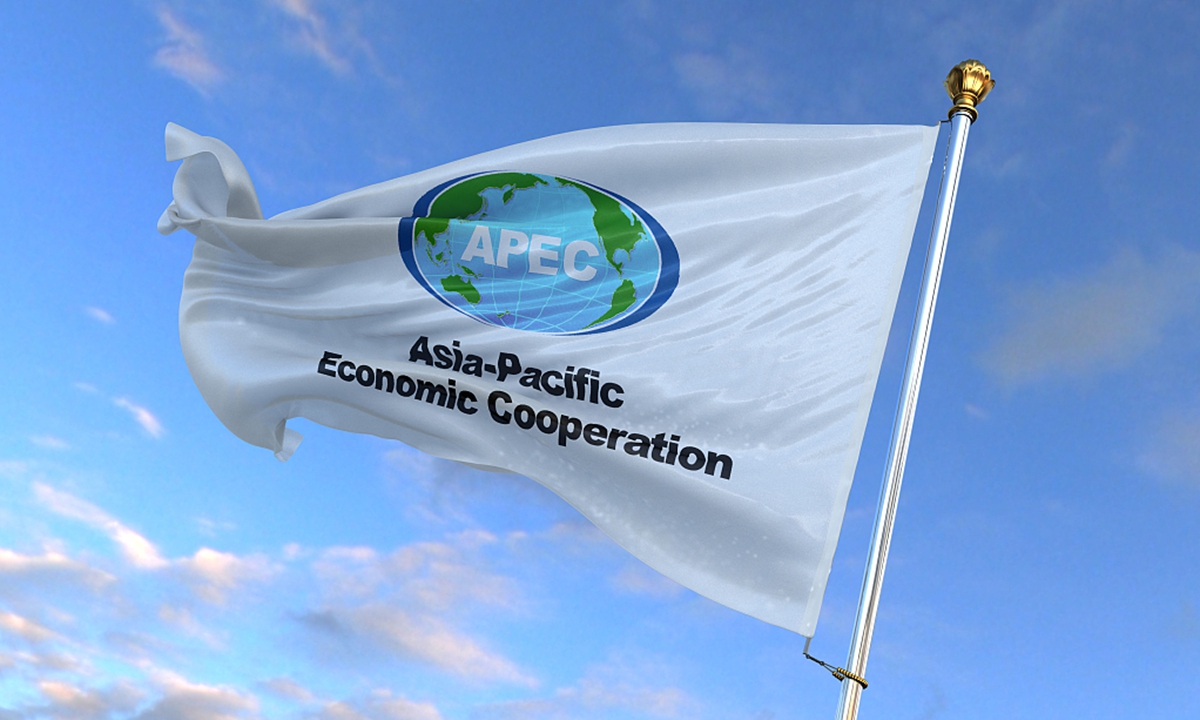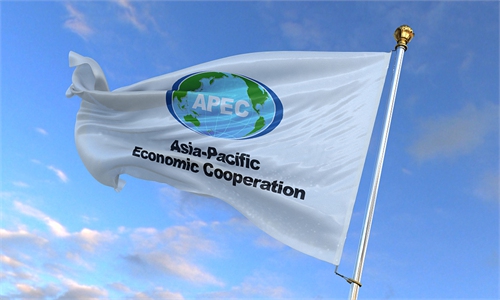
APEC. Photo: CFP
China will continue to promote accession to the Comprehensive and Progressive Agreement for Trans-Pacific Partnership (CPTPP) and the Digital Economy Partnership Agreement (DEPA), while implementing the Regional Comprehensive Economic Partnership (RCEP) with a focus on high quality, Gao Feng, a spokesperson from the Chinese Ministry of Commerce (MOFCOM) said on Thursday.
Gao made the comment responding to media questions over what efforts China will take to help achieve a comprehensive Free Trade Area of the Asia-Pacific (FTAAP) following the recently held Asia-Pacific Economic Cooperation (APEC) Trade Ministers' Meeting.
He stressed that China will work together with members of the Association of Southeast Asian Nations (ASEAN) to actively build China-ASEAN Free Trade Area Version 3.0 and make the bilateral and regional economic and trade relations more mutually beneficial.
Chinese Foreign Ministry spokesperson Wang Wenbin also made a comment on Thursday reaffirming that China views ASEAN as the priority of China's neighborly diplomacy and has always firmly supported the central position of ASEAN in the regional structure.
Wang added that China has cherished the long-established regional cooperation structure and achievements with ASEAN, noting that China will continue cooperating with ASEAN to shore up the China-ASEAN comprehensive strategic partnership.
China has been always committed to constructing the FTAAP and actively promote the process of Asia-Pacific regional economic integration over the past eight years after the "Beijing Roadmap for APEC's contribution to the realization of the FTAAP" was proposed in 2014, which depicted a blueprint for building a high-level free trade zone in the Asia-Pacific region, Gao said.
Moving forward, China will continue to implement its commitment to realize a comprehensive and a high-level FTAAP by carrying out action plans in areas such as digital economy and green economy, while actively participating to form new guiding documents to promote the development of FTAAP.
Global Times

